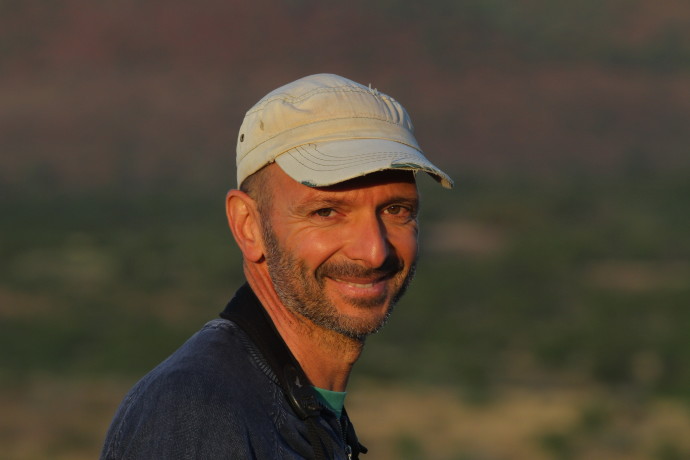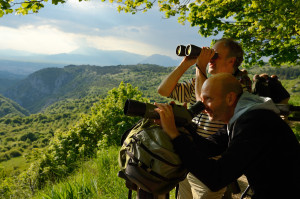Being one of two Regional Managers for Rewilding Europe, Deli is a key figure in making rewilding a reality in five areas stretching from Portugal all the way to Bulgaria on Europe’s eastern fringe. As the main point of liaison between the central office and local teams across the continent, it is his job to ensure that rewilding manifests itself as real action on the ground, and that local communities are going to be better off as a result.

In addition to Western Iberia in Portugal and the Rhodope Mountains in Bulgaria, he provides support to the teams in Velebit Mountains in Croatia, the Danube Delta in Romania, and the Italian Central Apennines, each of which comes with its own unique set of challenges and peculiarities. Promoting rewilding in places with different languages, histories, and cultures requires a wide range of skills from biology to communication and social sciences, as well as patience and understanding.
The holistic nature of the job strongly appealed to Deli when he decided to apply for the position in 2012. An ecologist by training, he had previously been involved in species reintroductions and ecological consultancy work, and the opportunity to apply these skills to a progressive new environmental movement on a large scale intrigued him. Four years onwards, the number of rewilding areas continues to grow, and Deli has settled into a job that could hardly be more dynamic or multifaceted.

If he is not working from home in beautiful Catalonia, he travels out to rewilding areas at least once per month, meeting with the local rewilding teams, local stakeholders and initiating collaborations, at times with unlikely partners. He was surprised to discover, for instance, that finding common ground with local hunting groups was easier than anticipated, and that there is no need for an a-priory antagonistic relationship between hunters and conservationists. If anything, one of his biggest challenges seems to be convincing established conservation practitioners to be bolder and less conservative in their thinking. Deli is keen to point out that, contrary to some of the criticism from parts of the conservation community, ‘rewilding’ does not mean returning to the past, but rather shaping a more dynamic, exciting, and wilder future.
In many ways, one of the most important aspects of his job is, together with the local teams, tackling actions on the ground point building them up towards a wider rewilding objective, and making sure that local decision makers do not misunderstand its underlying philosophy. This is easier accomplished in some areas than in others. The rate of private land ownership, for example, is much higher in Western Europe than it is in the East, making it more difficult for Deli to get all stakeholders on board and to get things moving.
As you cannot stop a trained scientist from wanting to conduct science, he also looks after monitoring and data analysis, making sure that rewilding is a success both socially and ecologically. As a result, he has a unique insight into the scientific and social reality of rewilding, and is highly optimistic about its prospects. Already, he is thinking out loud about where to rewild next, with the Pyrenees and central France being particularly high up on his wish list. For Deli, the future is full of opportunities, and he is excited about doing his part to help shape it.
Find out more about Deli Saavedra by reading his short biography.
